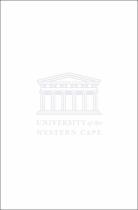| dc.description.abstract | Three questions are central to this thesis: First, can the practice of teaching be made safe from luck through the controlling power of knowledge and reason? Second, even if it can be made safe from luck, should it be? Third, if it is neither possible nor desirable to exclude luck from teaching, what knowledge and personal qualities will put practitioners in the strongest position to face the contingencies of luck and, more especially, to face those conflicts which arise as a consequence of circumstances beyond the practitioner's control? Martha Nussbaum's
account of luck and ethics in Greek philosophy and tragedy prompts the questions and provides, with Aristotle, many of the conceptual tools for answering them; Thomas Nagel's work on moral luck provides the categories for a more refined account of luck and its place in teaching. With respect to the first two questions, I argue that as a human practice teaching is open to the vicissitudes of fortune and cannot be made safe from luck, except at the expense of its vitality. Like other human practices, teaching is mutable, indeterminate and particular. Both its
primary and secondary agents (teachers and pupils) and the practice itself are vulnerable to luck in four categories: constitutive, circumstantial, causal and consequential. But teaching is not just a matter of luck; it is a public practice in which some people are put into the hands of others for specific purposes, usually at public expense. If we have no way of holding practitioners accountable for their actions, the practice loses credibility. Any money or trust put into it is simply a gamble. For these and other reasons, the drive to exclude luck from practice is strong. Yet strong luck-diminishment projects are themselves a threat to the vitality of the practice. During the twentieth century two strong luck-diminishment projects have been especially detrimental to teaching: one rooted in the science of management, the other in the empirical sciences. Both have resulted in a proliferation of unfruitful and often trivial research projects, to misconceived programmes of teacher education, to distorted notions of knowledge and excellence in teaching, and to self-defeating and impoverished practice. Luck-diminishment projects rooted in logic are more or less threatening to vital practice, depending on how far they are committed to instrumental reasoning and a science of measurement. These are blunt and controversial claims. A central task of the thesis is to refine and defend them. The refinement proceeds by way of a contrastive analysis of strong luck-diminishment projects and others which are more responsive to the indeterminacy of practice. With respect to the final question, I argue that there are at least three sets of necessary conditions for a flourishing practice in the face of luck. One concerns what Aristotle calls the virtues of intellect and character. Central among these are practical rationality (conceived non-instrumentally), situational appreciation, and the knowledge required for an intelligent pursuit of the definitive ends of teaching. A second set concerns enabling institutions. A third concerns the kind of community best able to nurture those qualities necessary for vital and excellent practice. All three sets are themselves vulnerable to reversal. Keeping the practice of teaching alive and ensuring that it remains true to its definitive ends is thus a matter of sustained struggle. | en_US |

